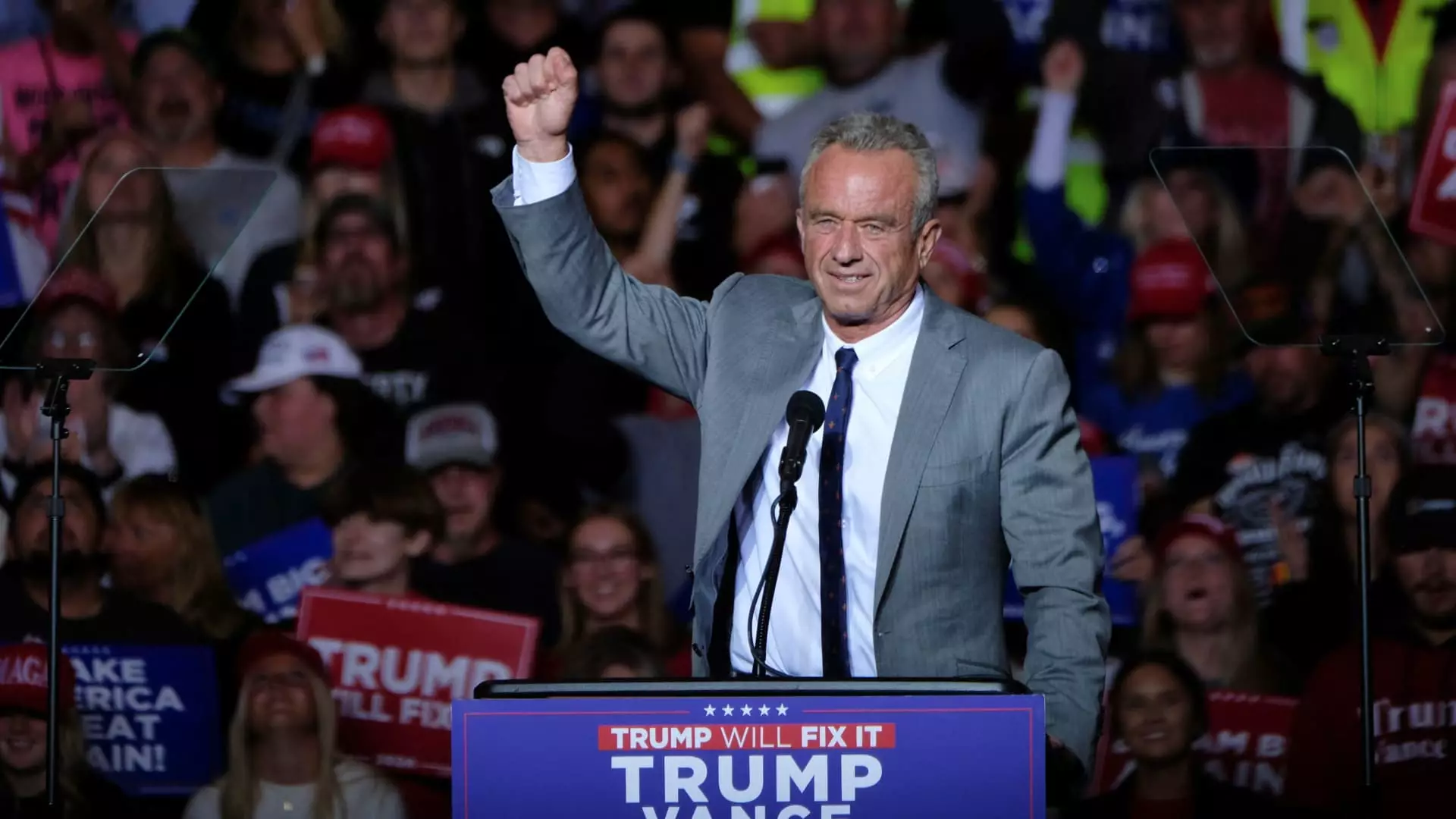In today’s financial market, the unexpected consequences of political appointments can have significant ramifications on various industries, including dental care. Recent developments surrounding the nomination of Robert F. Kennedy Jr. as Health and Human Services secretary by President-elect Donald Trump have drawn investor attention, particularly regarding the future of fluoride in U.S. water systems. As discussions surrounding public health evolve, what does this mean for companies like Henry Schein, Dentsply Sirona, and Envista? A closer look reveals the potential shifts in the dental care landscape.
The Market Response to Political News
On a notable trading day, shares of Henry Schein rose nearly 5%, marking an impressive performance that suggested investor optimism about potential regulatory changes. The surge in Henry Schein’s stock price underscores the market’s focus on the potential consequences of Kennedy’s policies on dental health practices. Given Kennedy’s history of advocating for the removal of fluoride from public water, the market response is not entirely surprising. Many investors have speculated that if fluoride were eliminated, the demand for dental services and products would increase, driving more consumers to seek professional oral health care.
The sentiment in the market isn’t isolated to Henry Schein; other dental product manufacturers, including Dentsply Sirona and Envista, showed a slight uptick in stock value as well. This collective response highlights a broader outlook among investors: the idea that changes in public health policy could rejuvenate the dental care market following a challenging period for healthcare stocks overall.
Fluoride has long been recognized within the dental community as an effective tool in combatting cavities. However, its presence in drinking water has also sparked fierce debate, leading some localities to reconsider or entirely eliminate its use in public systems. This contentious issue is especially relevant with the potential administrative shift poised to occur under Kennedy’s leadership.
While Kennedy’s effectiveness in reforming fluoridation policy remains contingent on Senate approval, the buzz surrounding his nomination has already resulted in noticeable market reactions. Investors are closely monitoring these developments, aware that if fluoride were to be removed from public water systems, the increased likelihood of tooth decay could fundamentally shift consumer behavior, with more individuals seeking dental care services.
According to Don Bilson from Gordon Haskett, there exists a prevailing assumption among investors that Kennedy’s ascendance to HHS would symbolize a shift toward lowering or abolishing the fluoridation of drinking water. Bilson argues that such a shift would predictably result in higher rates of dental issues, subsequently leading to greater demand for dental visits and products to mitigate the effects of tooth decay.
Interestingly, this moment stands apart from a broader downtrend observed in the health care sector. Despite the Health Care Select Sector SPDR Fund experiencing a decline in November, dental stocks managed to stand their ground, largely due to their perceived immunity to the adverse effects of Kennedy’s nomination. This resilience suggests that investors may view dental healthcare as a “safe haven” within a turbulent marketplace.
The Future of Dental Care Under Regulatory Changes
Despite the current optimism in dental stocks, it is essential to consider the long-term outlook. Regulatory changes often unfold over several years, and immediate results from Kennedy’s policies may be limited. Moreover, the jurisdiction over drinking water regulations typically resides more with the Environmental Protection Agency than the Health and Human Services department. This layers complexity onto the anticipated changes and reminds investors to remain cautious.
While the nomination of Robert F. Kennedy Jr. could indeed shake up the dental care industry, prompting an increase in service utilization, it is vital to maintain a nuanced perspective. Investors are abuzz with speculation about the potential fallout of fluoride removal, but real-world impacts will necessitate careful monitoring of both political developments and market reactions, as the landscape of dental care continues to evolve in a post-election America. As with any financial movement based on political developments, prudent investors will require a steady course of analysis and evaluation to navigate the uncertain waters ahead.


Leave a Reply